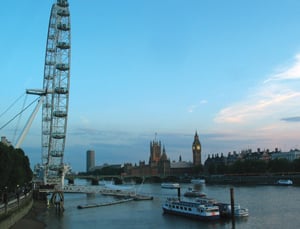Playing the long game
Jane Packham and Rachael Roe are optimistic about the longer-term tourism potential of the 2012 Olympics

As we finally reach the much heralded 2012, debates continue about the impact the Olympic and Paralympic Games will have on tourism and its significance for the cultural sector. Will it deliver unprecedented high footfall at cultural venues or will it have the opposite effect and actually deter our international cultural tourists?
In 2010 Visit London published statistics showing that 47% of overseas visitors in the city (domestic and international) cite galleries and museums as an ‘important’ influence on their decision to visit, and 35% a ‘very important’ influence. The London 2012 Organising Committee, the London Development Agency and the Mayor of London have each spoken about benefits of the Olympics for the cultural sector since the city was awarded the Games in 2005. The document ‘London Culture and 2012’, published in 2009 by the Mayor of London’s Cultural Strategy Group, outlines the many ways the city will celebrate its cultural offer; projects listed include Big Dance, CREATE and the World Shakespeare Festival.
Yet research undertaken by a number of leading organisations, including the European Tour Operators Association (ETOA), predicts that the whole of the tourism and leisure industry for the UK will suffer through the lack of international tourists rather than benefit from London hosting the Games. The type of international tourist that will visit London is visiting for a specific reason, to attend the Games, and will on average spend less, particularly on wider cultural activity. Lord Andrew Lloyd Webber himself said in an interview with BBC Radio 4 this year that bookings for musicals for the summer were 10% lower than normal and described the season as a “bloodbath of a summer”, predicting that some of his shows will close while the Games are here. These issues are exacerbated by an economy in the midst of a global slowdown: those who may have intended to visit London for the traditional tourist offer will be further deterred by the inflated prices of accommodation. The ETOA points out that the while the current levels of bookings are low, they still have time to rise. And despite predictions of low tourist levels, 2012 will offer a wide range of exhibitions, festivals and one-off celebrations across London and the UK. It will no doubt be a bumper year for culture lovers.
One opportunity that may leave a legacy for London’s cultural community is the international media coverage the city (and the country as a whole) will enjoy. Nielson Media Research, the official market research providers for 2012, predict that the Games will be seen by 4.7 billion people around the world, and point out that that is equivalent to approximately 70% of the global viewing population. Tens of thousands of press will engulf the country, covering not only the Games, but also life in the UK. Reports depicting London will stream to billions across the world; our arts, heritage, social scenes and news could help increase tourism post 2012, creating what’s known as the halo effect. What is often cited as a benefit by host cities is the springboard that the Olympics offer. The value and immediacy of this level of coverage has had a critical impact on the brand development of previous host cities, Barcelona being a particularly successful example. Therefore despite uncertainty over what international tourist footfall might be, this is an opportunity for arts organisations, large and small, to promote themselves to that potential audience. The media will be looking for a variety of stories, and while there is no doubt that the leading cultural organisations will gain substantial coverage, there will also be multiple opportunities for lesser-known organisations to gain international coverage from television, radio and Internet. The 2012 Games may not see the sector flourish immediately, but 2013 could prove to be a surprisingly prosperous year.
Join the Discussion
You must be logged in to post a comment.